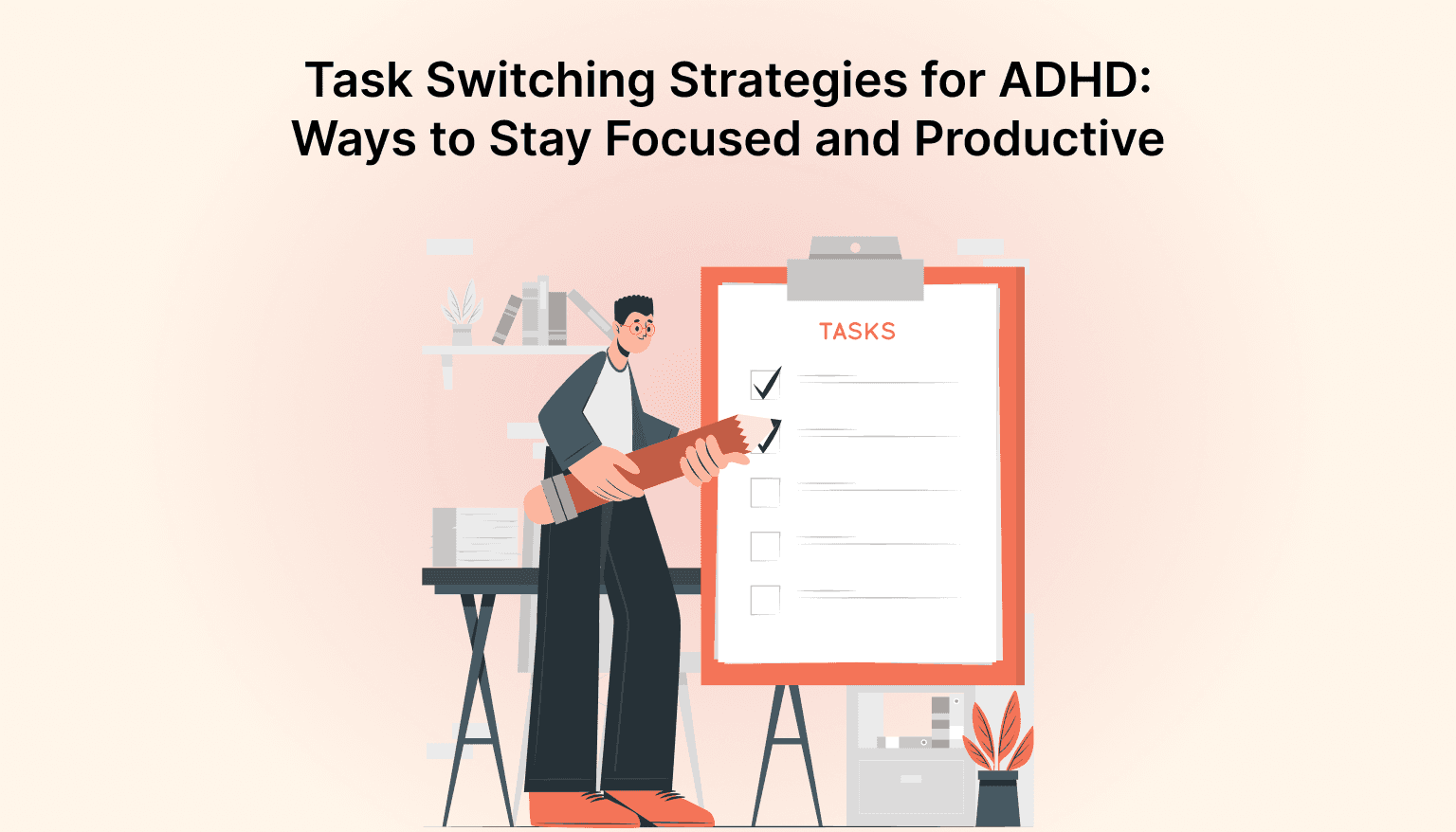10 Must-Have AI Tools for Product Managers
10
Being a product manager in 2025 is more demanding than ever. From defining product strategy and coordinating cross-functional teams to analyzing user feedback and meeting release deadlines, it’s a constant balancing act. Every decision impacts business outcomes, yet time and clarity are often in short supply.
That’s why more PMs are turning to AI-powered tools to lighten the load. These tools go beyond simple automation; they help uncover insights from massive data sets, predict user behavior, optimize task management, and even streamline communication between teams. In short, AI acts as your copilot, giving you more time to focus on strategic thinking instead of repetitive admin work.
In this blog, we’ll explore 11 powerful AI tools every product manager should know in 2025, tools that can boost productivity, improve decision-making, and help you manage your workflow smarter than ever before.
What You’ll Learn in This Blog:
How AI is reshaping product management – Automate repetitive tasks, streamline workflows, and focus on strategic decisions.
Top AI tools for PMs – Discover 9 must-have tools like Akiflow, Notion AI, ClickUp AI, Aha!, Productboard, Linear, Amplitude, Miro AI, and ChatGPT/Gemini.
Boost productivity & organization – Centralize tasks, optimize schedules, and reduce context-switching.
Make data-driven decisions – Analyze user feedback, prioritize features, and predict product success with AI insights.
Enhance collaboration & brainstorming – Turn team ideas into actionable plans and maintain clear, organized documentation.
Future-proof your PM workflow – Combine AI efficiency with human creativity for smarter, faster, and more impactful product management.
How AI Is Changing Product Management
Product management has evolved far beyond spreadsheets and status meetings. What once required hours of manual coordination is now being transformed by AI-powered automation and intelligent insights. Today, product managers can focus more on strategy and innovation, while AI takes care of the operational heavy lifting.

Alt text:How AI Is Changing Product Management
Here’s how AI is reshaping the role of modern PMs:
Automating planning and documentation: AI tools can instantly draft PRDs, summarize user interviews, and create meeting notes, saving hours each week.
Prioritizing features using data: Instead of gut instinct, PMs can now rely on predictive analytics and customer sentiment analysis to identify what truly matters to users.
Managing time and meetings intelligently: AI assistants optimize schedules, block focus time, and provide real-time summaries, helping PMs stay organized without constant context-switching.
Aligning teams on goals and outcomes: From automated progress tracking to smart OKR suggestions, AI helps keep teams connected and accountable to shared objectives.
As a result, product managers can work smarter, not harder, focusing their energy on decisions that drive growth and customer satisfaction.
Next, let’s look at the best AI tools built to make your product management life easier.
9 Must-Have AI Tools for Product Managers
Whether you’re tracking roadmaps, managing tasks, or aligning your team, AI tools can make every part of your product management process more efficient and less stressful. Here are some of the best AI-powered tools to help you stay organized and focused.

Alt text:9 Must-Have AI Tools for Product Managers
1. Akiflow
Best for: Managing time, tasks, and priorities efficiently
Akiflow is a powerful productivity tool designed to help busy professionals manage their days with clarity. It combines task management, calendar scheduling, and time blocking in one intuitive interface, so you can focus on execution, not juggling tabs.
What makes Akiflow stand out is its universal inbox that consolidates tasks from tools like Slack, Gmail, Asana, and Notion into one place. You can quickly capture, plan, and schedule everything without switching contexts.
Its AI assistant helps organize your workflow intelligently, suggesting priorities, blocking time for deep work, and reminding you of upcoming deadlines. With keyboard shortcuts, quick commands, and smart notifications, Akiflow helps product managers stay on top of what truly matters.
Key Features:
Unified inbox for all tasks and tools
Time-blocking and calendar integration
Smart notifications and reminders
AI-based task prioritization and scheduling
Quick commands for faster execution
Why it’s great for PMs: It minimizes context switching, keeps your day structured, and ensures you focus on high-impact tasks, exactly what product managers need to stay productive and calm under pressure.
2. Prezent - For Fast, On-Brand Slide Decks & Presentations
Best for: Creating executive-ready, brand-consistent, and visually polished presentations at scale.
Prezent is an AI-powered business presentation software built for business teams who need to create high-quality decks quickly without compromising brand standards. It’s especially useful for product managers, marketers, sales teams, and enterprise leaders who frequently present strategies, reports, and insights.
What makes Prezent stand out is its ability to generate complete, on-brand presentations from a simple prompt or outline. It applies your company’s fonts, colors, and design rules automatically—ensuring every slide is consistent, polished, and audience-ready.
Its AI storytelling engine helps structure narratives for leadership reviews, customer pitches, product updates, and data-heavy presentations. With collaborative editing, reusable templates, and enterprise-grade security, Prezent becomes a central hub for scalable, standardized communication across teams.
Key capabilities include:
AI-generated presentations from prompts or outlines
Automatic brand formatting across all slides
Personalized storytelling for different audiences
Real-time collaboration and shared team templates
Enterprise security, compliance, and admin controls
Why it’s great for PMs: It eliminates hours spent designing slides, ensures brand consistency, and helps product managers communicate clearly and confidently—whether presenting roadmaps, feature updates, or quarterly reviews.
3. Notion AI – For Smarter Documentation & Brainstorming
Best for: Writing, documenting, and organizing product content efficiently
Notion AI is an intelligent writing assistant built directly into Notion, designed to help product managers draft, summarize, and organize content quickly. Whether you’re creating PRDs, feature briefs, meeting notes, or research summaries, Notion AI can save hours of manual work.
Its AI capabilities allow you to:
Automatically generate content and summaries
Highlight action items from meeting notes
Suggest ideas for documentation, checklists, and to-do lists
Maintain consistent and organized documentation across your workspace.
Why it’s great for PMs: It streamlines the documentation process, reduces manual effort, and ensures that all critical product information is clear, up-to-date, and actionable, perfect for PMs who rely heavily on accurate, well-structured content.
4. ClickUp AI – For Task Automation & Reporting
Best for: Automating tasks, reporting, and managing agile workflows
ClickUp AI acts as your personal task automation assistant, helping product managers save time, reduce manual effort, and keep teams aligned. From smart task generation to automated sprint reports, ClickUp AI ensures your projects stay on track.
Key capabilities include:
Generating and summarizing tasks, Docs, and comments automatically
Automating workflows and sprint management
Producing real-time progress reports and updates for stakeholders
Integrating seamlessly with tools like GitHub, Figma, and Slack
Why it’s great for PMs: It reduces coordination overhead, centralizes project management, and allows PMs to focus on strategy and decision-making rather than repetitive administrative work, especially useful for agile teams handling complex projects.
5. Aha! – For AI-Assisted Product Strategy & Roadmaps
Best for: Planning product strategy and prioritizing roadmaps
Aha! is a comprehensive product management platform that leverages AI to help PMs make smarter, data-driven decisions about what to build next. It is ideal for visualizing product strategy, aligning goals, and defining clear roadmaps.
Key capabilities include:
AI-assisted roadmap suggestions based on feature impact and business goals
Prioritization of initiatives using predictive analytics
Visual planning tools to communicate product vision across teams
Tracking progress against strategic objectives
Why it’s great for PMs: Aha! Reduces guesswork in prioritization, ensures alignment with business objectives, and helps PMs present a clear, data-backed vision to stakeholders.
6. Productboard – For AI-Driven Feedback Analysis
Best for: Turning customer insights into actionable product decisions
Productboard uses AI to analyze and organize customer feedback, helping PMs understand what features matter most to users. It centralizes feedback from multiple sources, surveys, support tickets, and social media, and provides actionable insights.
Key capabilities include:
AI-powered categorization and prioritization of customer feedback
Identifying trends and feature requests that align with product strategy
Integration with tools like Jira, Slack, and Zendesk to streamline workflows
Creating a clear feature roadmap backed by real user insights
Why it’s great for PMs: It ensures that product decisions are customer-centric, improves prioritization, and reduces the time spent manually analyzing feedback.
7. Linear – For Predictive Issue Management
Best for: Managing tasks and issues proactively in development workflows
Linear is a task and issue tracking tool that leverages AI to categorize issues, predict blockers, and streamline workflow for engineering teams. It’s designed for PMs who need to keep projects on track and anticipate potential delays.
Key capabilities include:
AI-driven issue categorization and assignment
Predictive insights to highlight potential blockers or bottlenecks
Seamless integration with GitHub, Figma, Slack, and other dev tools
Dashboards and reporting to track project progress efficiently
Why it’s great for PMs: Linear allows PMs to stay proactive rather than reactive, ensuring the timely delivery of features and better coordination with engineering teams.
8. Amplitude – For AI-Powered Product Analytics
Best for: Understanding user behavior and optimizing product performance
Amplitude is an advanced product analytics platform that uses AI to uncover trends, retention patterns, and key user behaviors. It helps PMs make data-driven decisions about product improvements and feature prioritization.
Key capabilities include:
Behavioral AI highlights trends, retention issues, and engagement patterns
Predictive insights to identify features that drive conversions
Customizable dashboards to monitor metrics across products and teams
Integration with other tools like Segment, Slack, and Jira for a smooth workflow
Why it’s great for PMs: Amplitude provides actionable insights from user behavior, enabling PMs to focus on features and changes that will maximize engagement and growth.
9. Miro AI – For Smarter Brainstorming Sessions
Best for: Turning collaborative brainstorming into actionable plans
Miro AI enhances the popular collaborative whiteboarding platform by using AI to analyze unstructured ideas and organize them into clear, actionable outputs. It’s perfect for PMs who facilitate ideation sessions and team workshops.
Key capabilities include:
Converts messy boards into structured plans and summaries
AI suggests next steps, priorities, and insights from discussions
Supports real-time collaboration across distributed teams
Integrates with tools like Slack, Jira, and Google Workspace
Why it’s great for PMs: Miro AI ensures creative ideas don’t get lost and makes team discussions actionable, saving time while improving alignment.
10. ChatGPT / Claude / Gemini – For Ideation & Competitive Research
Best for: Generating ideas, research, and communication drafts
AI chat assistants like ChatGPT, Claude, and Gemini are versatile tools for product managers. They help generate user stories, draft FAQs, perform competitive analysis, and brainstorm strategies quickly.
Key capabilities include:
Rapid ideation for features, product improvements, and marketing content
Summarizes competitor offerings and market research
Drafts internal documents, emails, or stakeholder updates
Supports integration with other PM tools via APIs or plug-ins
Why it’s great for PMs: These AI assistants act as creative copilots, helping PMs accelerate ideation, research, and communication without starting from scratch.
Also read: 20 Practical Productivity Tips to Get More Done Every Day
How to Choose the Right AI Tools for Your Workflow
Selecting the right AI tools isn’t about adding more apps; it’s about solving real workflow challenges. Here’s how to choose what fits best for you and your team:
1. Identify your biggest friction points: Start by mapping where time and effort leak the most, whether it’s task prioritization, cross-team communication, or meeting overload. This helps you target tools that directly solve your pain points.
2. Match tools to your product lifecycle: Different stages need different support. Use AI planning tools for roadmapping, analytics tools for post-launch insights, and automation tools to streamline ongoing operations.
3. Check for seamless integrations: Pick tools that connect effortlessly with your existing ecosystem, Jira, Slack, Figma, Notion, or your analytics suite. Smooth integration means less friction and better collaboration.
4. Start small, then scale: Experiment with one or two tools first. Track their impact on productivity and decision-making, and expand gradually based on measurable ROI.
What’s Next: The Future of AI in Product Management
As product management grows increasingly complex, AI is set to become an indispensable partner. From automating routine tasks to providing actionable insights, the next generation of AI tools promises to empower PMs to work smarter, make better decisions, and innovate faster.

Alt text:What’s Next: The Future of AI in Product Management
Rise of AI Copilots: AI assistants are evolving beyond basic task management. They can autonomously summarize meetings, draft roadmaps, and track KPIs, giving PMs more time to focus on strategic decision-making and high-impact work.
Predictive Analytics for Feature Success: Using historical data and machine learning, predictive analytics can forecast feature success, reduce churn, and optimize pricing. This allows PMs to make data-driven decisions, prioritize high-impact features, and align product strategy with market needs.
Human Creativity + AI Efficiency: The combination of human insight and AI capabilities enables smarter, faster product management. PMs can focus on innovation, while AI handles repetitive analysis, trend spotting, and task orchestration, driving better outcomes with less effort.
Conclusion
AI isn’t here to replace product managers; it’s here to amplify their capabilities. By taking over repetitive tasks, analyzing data, and providing intelligent recommendations, AI allows PMs to focus on strategy, creativity, and high-impact decisions.
Start small. Experiment with tools like Akiflow to optimize your schedule or Tability to align your team on goals. Test one or two tools, see what works best for your workflow, and gradually expand your AI toolkit.
Ready to upgrade your workflow? Try Akiflow today and discover how much more you can achieve in less time, with greater clarity and efficiency.
FAQ
1. How do AI tools impact decision-making in product management?
AI tools provide data-driven insights and predictive analytics, enabling product managers to make informed and timely decisions.
2. What are the challenges in adopting AI tools for product management?
Challenges include integration complexities, data privacy concerns, and the need for training to utilize AI capabilities effectively.
3. How can product managers ensure ethical use of AI tools?
By implementing guidelines for transparency, fairness, and accountability, product managers can ensure ethical AI tool usage.
4. What is the future of AI in product management?
The future involves deeper AI integration, with tools offering more personalized insights, enhanced automation, and improved collaboration capabilities.
5. How can AI tools improve product management efficiency?By automating repetitive tasks, providing data-driven insights, and streamlining communication, AI tools enable product managers to focus on strategic initiatives.




